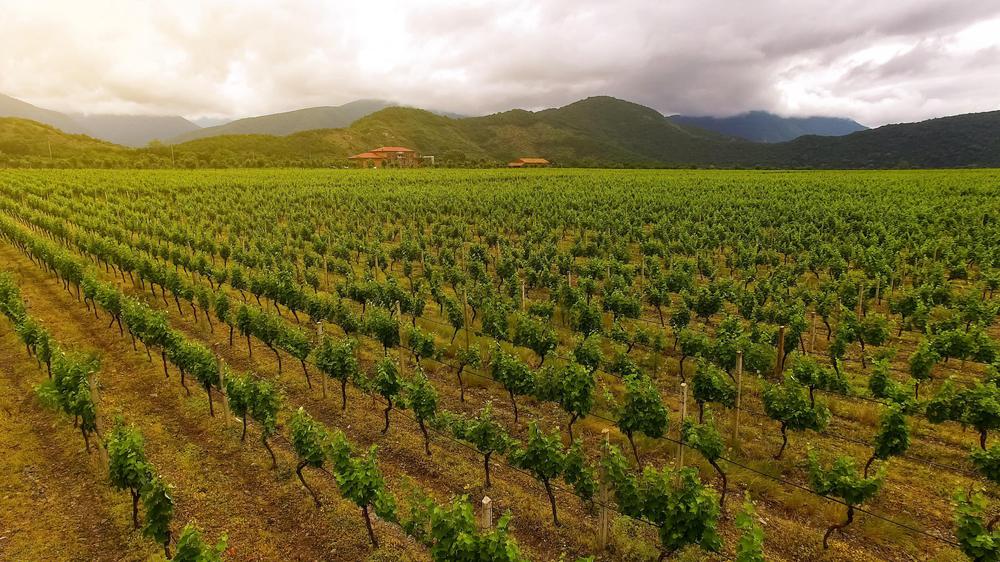Georgian wine, deeply rooted in the nation's history and culture, has emerged as a significant driver of its economy. This article delves into the intertwined relationship between Georgian wine, its economic impact, and the burgeoning field of wine tourism. Notably, the traditional Qvevri winemaking method, recognized by UNESCO, underlines Georgia's status as the "cradle of wine". The evolution of this sector not only influences Georgia's economic growth through exports but also positions the country as a unique destination for wine enthusiasts globally.
The Economic Impact of Georgian Wine
Georgia's journey as the birthplace of wine, dating back over 8000 years, has today translated into a robust economic contributor. Wine export, accounting for about 5.7% of total exports from 2015 ]to 2021, is the fourth largest export product, showcasing its significance. The sector's impact is further highlighted by its contribution to the Gross Domestic Product (GDP), averaging 1.28% over recent years. This marks a noteworthy increase from 0.64% in 2015, underscoring the sector's growing economic footprint.
The positive correlation between wine exports and real GDP growth, particularly evident since 2018, signifies the sector's role in the country's economic development. However, challenges like market diversification and the need for marketing and professional expertise are key hurdles. The government's strategy, shifting from subsidies to support for marketing in international markets, is expected to enhance competitiveness and ensure sustainable growth.
Wine Tourism: A New Frontier
The ancient wine culture of Georgia, combined with its unique Qvevri winemaking tradition, sets the stage for a thriving wine tourism sector. The recent revival in traditional winemaking practices has not only preserved a significant cultural heritage but also attracted global interest. Wine tourism in Georgia, integrating culture, history, and lifestyle, is increasingly recognised as an essential element of sustainable tourism development.
The potential of wine tourism in Georgia is immense, especially considering the country's rich wine history and over 400 indigenous grape varieties. The annual grape harvest, or rtveli, is a cultural event in itself, offering a unique experience for tourists. UNESCO's recognition of the Qvevri winemaking method further elevates Georgia's status in the global wine arena.
Wine tourism serves as a bridge connecting tourists with the authentic Georgian culture and lifestyle. The sector's expansion can significantly contribute to the local economy, especially in rural areas, and enhance the overall image of Georgian wine globally. Moreover, targeting key markets like the USA, UK, Japan, and Germany with higher average export prices could elevate the perception of Georgian wine and stimulate both the quantity and value of exports.
Challenges and Opportunities
Despite the promising outlook, the sector faces challenges such as diversification of export markets and marketing activities, as well as a shortage of skilled professionals. The current export market is heavily dependent on Russia, necessitating efforts to broaden the market base. Moreover, the average export price of $2.30 highlights the need to target markets that value quality and are willing to pay higher prices.
The government's role in transitioning from subsidies to supporting trade marketing costs in foreign markets is crucial. This shift can help manufacturers enter international networks, thereby enhancing the sector's profitability and encouraging the production of high-quality wine.
Conclusion
The intertwining of Georgian wine's cultural heritage and economic impact presents a compelling narrative. As the country navigates the challenges of market diversification and professional development, the focus on sustainable growth and quality production remains paramount. The synergy between the wine sector and tourism offers a promising avenue for economic development, cultural preservation, and global recognition of Georgia's unique wine legacy.

 Georgian Wine Exports
Georgian Wine Exports
 Wine Production Statistics
Wine Production Statistics
 Georgian Wine Role In International Trade
Georgian Wine Role In International Trade
 Georgian Wine Boom
Georgian Wine Boom




